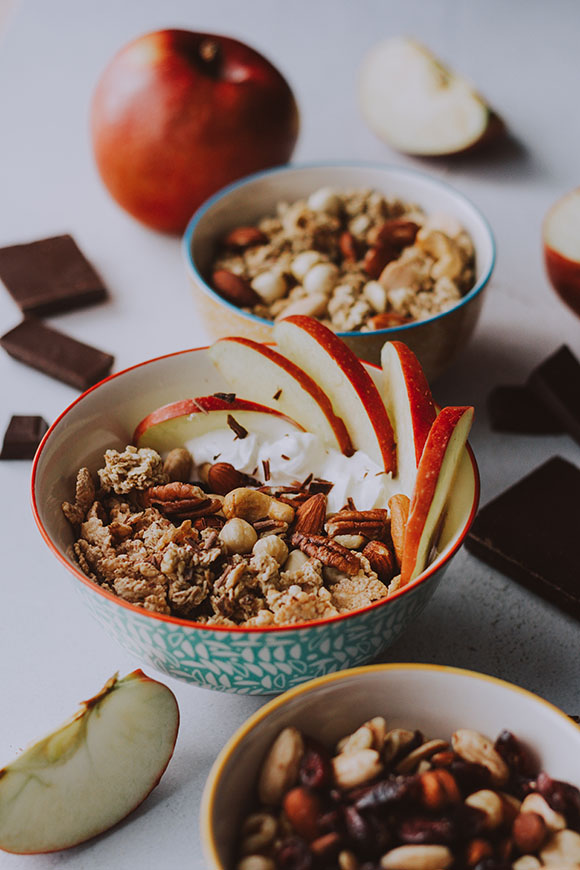Ayurveda and junk food put together sounds like an oxymoron – how can something be junk and then also have the holistic benefits of a well-balanced diet. Namita Piparaiya, Yoga and Ayurveda Lifestyle Specialist, Founder – Yoganama, tell you a few ways to reverse the properties of junk food that make it ‘junk’.

Junk food is that food which is very high in calories and very low in nutritional value. These high calories typically come from refined sugars and unhealthy fats. There’s little to no fiber, vitamins, or trace minerals. Since, it has very little nutritional value, so the satiety is lesser and as a result you end up eating more of it to reach the desired level of ‘satisfaction’. This creates imbalances in the body leading to obesity, hormonal fluctuations, fatigue, heart ailments and metabolic issues.
1.) Choose whole grains over processed white flour- When you choose whole grains or wholemeal flours you get the much-needed fiber and essential vitamins. These are great for your gut health and blood sugar.
2.) Replace condiments with fresh spices or chutneys- Instead of using store bought sauces, you can make fresh chutneys at home. They use a lot of local and seasonal greens as well as herbs, which help reduce inflammation and promote healthy digestion. They also help balance the flavour of dishes.
3.) Use healthy fats in moderation- Fats are high in calories, and also make you feel full faster. So, when used in moderation they can be good for our health and keep us full for longer. Equally if your life is mostly sedentary then fried foods should be kept minimal. Baking with wholesome ingredients is a better option than frying, especially for kapha dosha.

4.) Use a variety of grains and cereals- Modern diet often gets confined to just two grains – wheat and rice. Traditionally, a wide variety of millets were also used in India for cooking. Experiment with them to add more variety and nutrition to your diet. Millets are generally warm in nature and are balanced well when consumed with buttermilk in summers. Sorghum (Jowar) and Barnyard Millets are cooling and suitable for summers.
5.) Eat as per your dosha- Ayurveda recommends foods and recipes as per your unique constitution – what would be a good recipe for me, may not necessarily be favourable to you. A standard guideline is that people who are going through a Vata dosha imbalance should avoid dry, cold and light foods. Likewise, in Pitta dosha imbalance, one should be careful with highly spicy, fermented or heating foods. And Kapha dosha imbalance can be aggravated by heavy, sweet and high fat foods.
6. Eat as per the seasons- There are many traditional seasonal dishes which are suitable for that time of the year. For instance, Gajar Halwa in winters, Aam Panna in summers, or use of barley in monsoons, and so on. Equally, Ayurveda discourages eating foods that increase the dominant property of the season – such as chilled frozen foods in winters, or spicy foods in high heat conditions, or raw foods in monsoons. Occasional treats are largely harmless, but consistently making such choices can impact our health adversely.

7.) Practice Yoga regularly- Ayurvedic texts state that those who exercise regularly, are not easily impacted by the adverse effects of poor food combinations (Viruddha Ahara). While no amount of exercise can reverse the impact of a consistently unhealthy diet – regularly exercising, practicing yoga, pranayama, and meditation helps improve our awareness levels and makes us more mindful. This in turn makes us more attuned to what’s good for our body and what’s not. And overtime you will naturally gravitate towards better choices in terms of food and life. And that’s a much better place to be in that constantly forcing ourselves to adhere to diets or suppressing our cravings.
Healthy eating should not be something we force upon ourselves, it is about improving our relationship with food, adding diversity, practicing moderation and developing a good understanding of what works for us and what doesn’t. Ayurveda helps us guide in the right direction, and regular practice of yoga and meditation helps us take better decisions and sustain a lifestyle that is conducive for our overall well-being.






